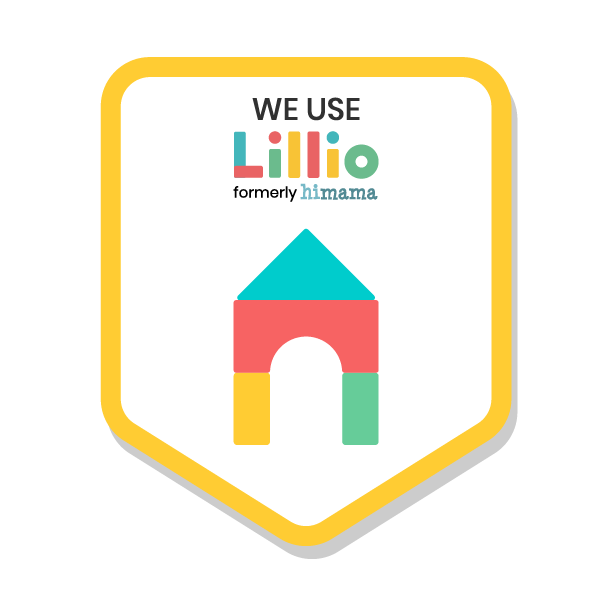The University of Guelph Child Care and Learning Centre (CCLC) proudly delivers an inclusive, child-centred, family-oriented program based on a philosophy of children as competent, capable, curious participants and contributors in their environments, their families and their communities and so very rich in potential. We are committed to supporting families and children to reach their potential through developing relationships built on respect and providing an environment that supports positive and responsive interactions. This begins with relationships among staff, students and volunteers and ripples out to relationships with children, families and the community. We are also proud to be part of the University of Guelph community and to be a place of learning for many undergraduate students, especially in the Child, Youth and Family program. Teaching future early learning and child care professionals is a privilege and responsibility that is valued by staff at the CCLC. It both enriches our program and broadens our impact.
Every person who enters the CCLC should feel that they belong here, that they are engaged in the program, that their well-being is supported and even enhanced just by being here, and that they are free to express themselves. These four foundations of belonging, engagement, well-being and expression are the rights of all children and provide the basis of our goals and expectations for our program.
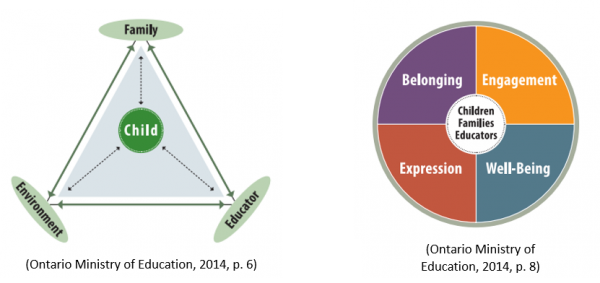
As such, this program statement is a living document that continually evolves with the ongoing engagement of the staff and families in our program. Annual and ongoing review of the program statement with staff, students, volunteers and families ensures its continued relevance. CCLC staff are supported to make meaningful contributions to the ongoing development and evolution of the program through professional learning provided in the form of onsite pedagogical leadership, attendance in training, workshops and conferences, and support with education.
The following statements specify the approaches we will employ to: promote health, safety, nutrition and well-being; foster positive and responsive relationships; support exploration, play and inquiry; and support family engagement and communication.
Approaches to Promote Health, Safety, Nutrition and Well-Being
The health, safety, nutrition and well-being of the children in our programs is a primary focus of the CCLC. Our goal is for all children to develop a sense of self, health and well-being that they are able to bring with them into their later years. We recognize the significant importance of the early years in children’s development and strive to provide children with a strong foundation.
The CCLC supports these goals through the implementation of a variety of approaches, such as by:
- Providing nutritious foods and beverages that incorporate family and cultural preferences and are in accordance with the Canada’s Food Guide and approved by a Registered Dietician, including one main meal and at least two snacks per day;
- Involving the children and families in menu choices;
- Providing experiences for children to engage in food preparation (e.g. baking activities);
- Being sensitive to and accommodating for children’s food restrictions and allergies;
- Creating family-style, positive eating environments with foods and portion sizes that are responsive to children’s cues of hunger and fullness;
- Ensuring that all staff members are trained and able to appropriately respond to health, safety and emergency situations;
- Engaging children in physical activity and decreasing the amount of time that is spent in sedentary activities;
- Providing opportunities for children to engage in risk at a level that is appropriate for their development;
- Supporting mental health wellness through encouraging children’s development of self-regulation, resiliency and a rich emotional vocabulary;
- Providing opportunities and organization of materials to support children’s growing autonomy and independence (e.g. using real dishes for meal times);
- Completing daily health checks through communication with families to understand the child’s state of health entering the program and continually monitoring their health during their involvement in the program;
- Performing at least daily safety monitoring checks to ensure that indoor and outdoor environments are safe;
- Providing daily opportunities for sleep, rest or engagement in quiet activities depending on each individual child’s needs and development;
- Coordinating with Wellington-Dufferin-Guelph Public Health to ensure that all health and safety procedures are in accordance with research-based best practices;
- Providing at least two hours of time spent learning outside on a daily basis, weather permitting;
- Monitoring children’s engagement in activities to determine optimal periods for transitions;
- Providing a variety of indoor, outdoor, active, rest and quiet experiences throughout the day.
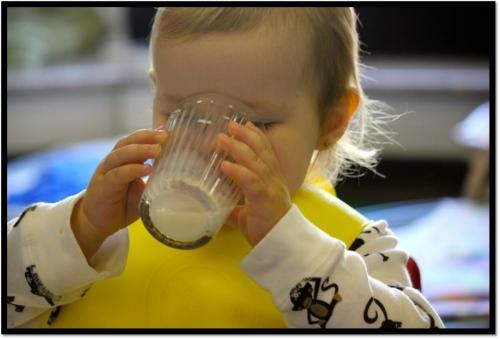
Approaches to Foster Positive and Responsive Relationships
Positive and responsive relationships are essential to high-quality early learning and care. Our goal is to nurture authentic, caring relationships and connections to create a sense of belonging between children, adults and the world around them. We create opportunities for children to connect to others in their world, support their experiences of being valued, and provide opportunities to be part of a community. Through responding positively to children’s cues and engaging in reciprocal interactions secure relationships are developed. We believe that supporting children’s internal capacity to self-regulate and engage in positive interactions is the foundation for optimal learning, development, health and well-being.
The CCLC supports these goals through the implementation of a variety of approaches, such as by:
- Welcoming and greeting children and families at arrival;
- Providing opportunities for children to engage with and make contributions to the world around them;
- Promoting engaged citizenship through empowerment, empathy and advocacy;
- Supporting the development of a sense of community within the Centre, the University campus and the Guelph community as a whole;
- Providing opportunities for children to be heard and for their contributions to be appreciated within their communities;
- Advocating for children as active, competent people who have a stake in Canadian society and in whom Canadian society has a stake;
- Encouraging children’s active participation within their communities and their acquisition of civic literacy skills;
- Honouring children’s ideas and contributions by responding to them in a respectful way and by focusing on using authentic language in our interactions with them;
- Interacting with children on their level;
- Actively play partnering with children to expand their learning and support their social experiences;
- Knowing when to be an intentional observer in a play scenario and to support these learning experiences from afar;
- Modeling resiliency and problem-solving skills with children and helping them to identify their feelings, the feelings of others, and possible solutions;
- Placing importance on encouraging children to develop authentic skills for solving problems, instead of having them take part in a prescribed solution (e.g. making a child say sorry);
- Getting to know the children on an individual basis to identify and work to proactively minimize stressors, and to help the children become self-aware;
- Actively listening to children and giving them the time and space to express themselves;
- Incorporating learning experiences for the children to engage in a range of group sizes;
- Responding to challenging behaviours with the most appropriate and effective but least intrusive strategy;
- Reframing challenging behaviours by reflecting on why they may be occurring and what the child might be trying to express;
- Acknowledging and positively reinforcing children’s efforts in a meaningful way by being specific when describing actions and reactions;
- Encouraging children to be respectful of the ideas of others and modelling this ourselves;
- Talking about emotions and modeling empathy and self-regulation out loud for the children to hear.
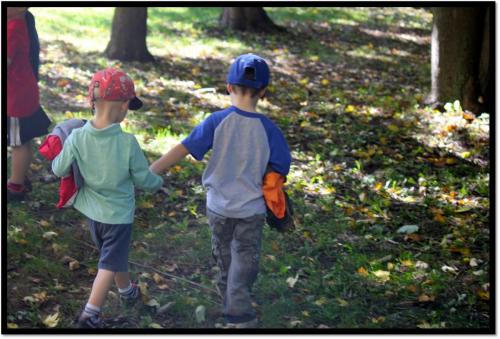
Approaches to Support Exploration, Play and Inquiry
When children are able to explore the world around them with their natural curiosity and exuberance, they are fully engaged. Our goal is for the indoor, outdoor and natural environments to engage children in active, creative and meaningful exploration, play and inquiry. Through this type of play and inquiry, they develop skills such as problem solving, creative thinking, and innovating, which are essential for learning and success in school and beyond.
The CCLC supports these goals through the implementation of a variety of approaches, such as by:
- Observing and engaging with children to understand their questions and inquiries and using these as a guide for programming;
- Respecting and supporting the children’s sense of curiosity and wonder;
- Viewing the environment as the “third teacher” and understanding the significant impact it has on our program;
- Organizing the learning environments in a way that makes them aesthetically appealing, uncluttered, engaging and welcoming;
- Incorporating materials that add to a homelike feeling within the learning environments (e.g. curtains, plants, lamps, natural lighting, soft colours, pillows, real materials);
- Providing interesting and complex open-ended learning materials for children to engage with and explore;
- Including real items (e.g. dishes, lamps, glass jars) for children to use and explore in their play;
- Providing natural elements (e.g. sticks, rocks, shells, plants) to help children explore the natural world;
- Role modeling and encouraging respect for materials in the shared learning environment;
- Providing opportunities for extended and uninterrupted play and exploration multiple times each day;
- Providing a variety of learning experiences and materials for children to freely choose to play and express themselves with;
- Engaging with children during their exploration, play and inquiry to support and extend their meaning making of their experiences;
- Engaging in open-ended conversations with children and asking thought-provoking questions to help expand the children’s learning and our understanding of their explorations;
- Having an awareness of the many languages that children use to express themselves and providing opportunities for children to share their thoughts and ideas in a variety of ways;
- Reviewing documentation of learning experiences with the children in order to encourage their reflection on their learning;
- Capitalizing on spontaneous, meaningful learning moments during the day by being actively engaged with the children;
- Creating learning environments that mirror the ideas, values, attitudes and cultures of those who use the space;
- Involving local community partners in children’s explorations and inquires (e.g. visiting various areas around the University of Guelph campus, visiting families’ workplaces, regularly exploring in the Arboretum, making use of locally donated resources and materials, inviting relevant experts in to share knowledge with the children, etc.).
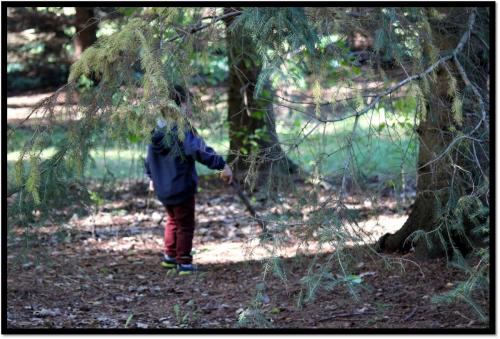
Approaches to Support Family Engagement and Communication
Care and learning cannot occur without the support of the family. Our goal is for families to be active participants in their child’s experience at the CCLC. We strive to establish positive, responsive relationships with children and their families by promoting engagement and ongoing communication about the program and their children.
The CCLC supports these goals through the implementation of a variety of approaches, such as by:
- Communicating with families on a daily in-person basis at minimum at arrival and departure;
- Communicating our perspective of the children’s learning and development with families in daily documentation sent electronically through Lillio and posted on documentation boards;
- Encouraging families to share their perspective on the children’s learning and development through in-person sharing and electronic responses in Lillio;
- Encouraging families to share pictures and stories of their child’s time at home and with family;
- Displaying family information and photographs throughout the learning environments;
- Incorporating aspects from a variety of cultures within the learning environment (e.g. food, music, art, photographs, artifacts);
- Inviting family participation within the daily program and encouraging them to share their varied perspectives and cultural experiences with the children;
- Creating a comfortable place in each learning environment for families to stay and visit;
- Encouraging parent participation and engagement through a Parent Advisory Council;
- Connecting families with local community partners for additional support and services;
- Planning special events and social activities for families to engage in throughout the year (e.g. Mother’s and Father’s Day celebrations, holiday gatherings, annual family picnics).
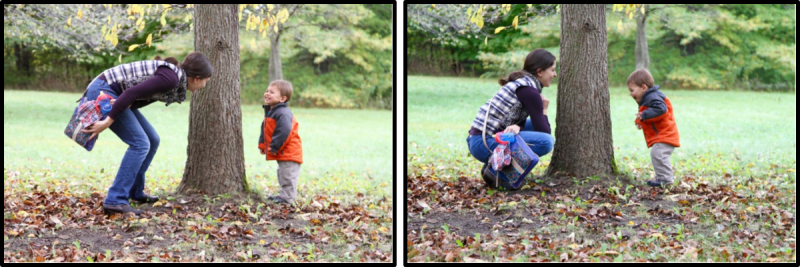
Our Use of Documentation
The Child Care and Learning Centre uses a variety of documentation methods to share in the joy of children’s learning and development, support our communication with parents, reflect on our planning and creation of environments and experiences, review the impact of our interaction and planning approaches, and to support and monitor the implementation of our program statement. On a daily basis, each playroom writes a piece of documentation that draws attention to the children’s thoughts and contributions, shares our professional knowledge and includes representation of the children’s, educators’ and families’ perspectives. These pieces of daily documentation share a broader picture of what is happening in each learning environment on a regular basis. Within each playroom, more individually and long-term focused documentation pieces are also created and shared with families. These documentation pieces reflect the children, families and educators in each individual learning space and take on a variety of formats, including individual learning stories, group reflections, storybooks, and documentation panels.
